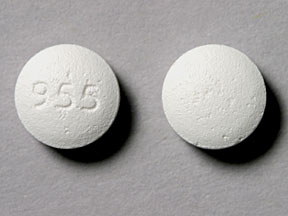
Zantac 360 Max St Coupons & Savings Card – Discount Prices from $4.48
Brand for: Famotidine
Famotidine is used to treat ulcers of the stomach and intestines and to prevent intestinal ulcers from coming back after they have healed. This medication is also used to treat certain stomach and throat (esophagus) problems (such as erosive esophagitis, gastroesophageal reflux disease-GERD, Zollinger-Ellison syndrome). It works by decreasing the amount of acid your stomach makes. It relieves symptoms such as cough that doesn't go away, stomach pain, heartburn, and difficulty swallowing. Famotidine belongs to a class of drugs known as H2 blockers. This medication is also available without a prescription. It is used to prevent and treat heartburn and other symptoms caused by too much acid in the stomach (acid indigestion). If you are taking this medication for self-treatment, it is important to read the manufacturer's package instructions carefully so you know when to consult your doctor or pharmacist.
Our Zantac 360 Max St coupons are free to use. You can print the coupon, email it to yourself, or receive the Zantac 360 Max St coupon via text message. To get your free discount, show the pharmacist your Zantac 360 Max St savings card which has the discounted coupon price. Use our filters below to edit the prescription box to match your needs. The Zantac 360 Max St prices will update based on your prescription needs. Above our Zantac 360 Max St coupons, you can change the location to see pharmacy prices in other areas. Our prescription discount card will update online with the specific pharmacy costs associated with your edits. Be sure to text, email, or print the Zantac 360 Max St savings card code that you need after editing the prescription box and location field. Show the discount card to your pharmacist before paying.
My prescription
Edit
20MG, Famotidine (60 Tablets)
Select pharmacy

CVS
$19.56
COUPON PRICE
Walmart
$4.48
COUPON PRICE
Walgreens
$10.93
COUPON PRICE
Albertsons
$15.12
COUPON PRICEZantac 360 Max St savings card
Show this card to your pharmacist
Walmart
$4.48
BIN
ID
PCN
GRP
019876
LH9B67CA27
CHIPPO
LHX
Powered by
Famotidine is used to treat ulcers of the stomach and intestines and to prevent intestinal ulcers from coming back after they have healed. This medication is also used to treat certain stomach and throat (esophagus) problems (such as erosive esophagitis, gastroesophageal reflux disease-GERD, Zollinger-Ellison syndrome). It works by decreasing the amount of acid your stomach makes. It relieves symptoms such as cough that doesn't go away, stomach pain, heartburn, and difficulty swallowing. Famotidine belongs to a class of drugs known as H2 blockers. This medication is also available without a prescription. It is used to prevent and treat heartburn and other symptoms caused by too much acid in the stomach (acid indigestion). If you are taking this medication for self-treatment, it is important to read the manufacturer's package instructions carefully so you know when to consult your doctor or pharmacist.
Our Zantac 360 Max St coupons are free to use. You can print the coupon, email it to yourself, or receive the Zantac 360 Max St coupon via text message. To get your free discount, show the pharmacist your Zantac 360 Max St savings card which has the discounted coupon price. Use our filters below to edit the prescription box to match your needs. The Zantac 360 Max St prices will update based on your prescription needs. Above our Zantac 360 Max St coupons, you can change the location to see pharmacy prices in other areas. Our prescription discount card will update online with the specific pharmacy costs associated with your edits. Be sure to text, email, or print the Zantac 360 Max St savings card code that you need after editing the prescription box and location field. Show the discount card to your pharmacist before paying.
Zantac 360 Max St FAQs
Using the SaveHealth discount card, what is the price of Zantac 360 Max St without insurance?
Using the SaveHealth discount card, the price of Zantac 360 Max St without insurance is $4.48.
What is the price of Zantac 360 Max St at CVS?
The price of Zantac 360 Max St at CVS is $19.56.
What is the price of Zantac 360 Max St at Walgreens?
The price of Zantac 360 Max St at Walgreens is $10.93.
What is the price of Zantac 360 Max St at Walmart?
The price of Zantac 360 Max St at Walmart is $4.48.
